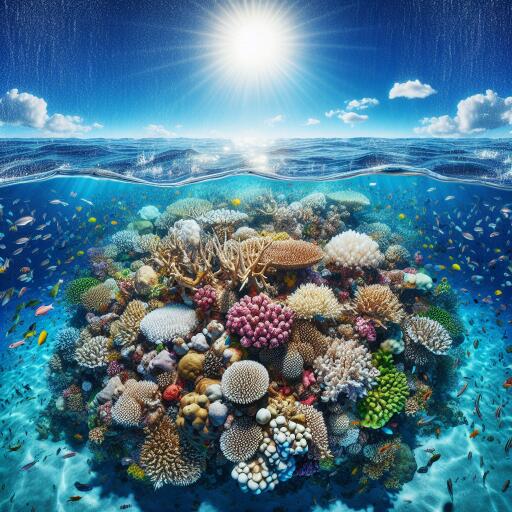
Marine Heatwaves Push Coral Reefs Toward Local Extinction
Coral reefs globally are facing severe challenges as ocean temperatures rise, posing significant threats to their survival. The ability of these ecosystems to adapt may not be quick enough, especially without prompt and substantial decreases in greenhouse gas emissions. A recent study highlights the urgent need for global climate efforts to prevent further harm to coral reefs.
Researchers have utilized advanced eco-evolutionary simulation models to assess how corals might respond to changing climate conditions. Focusing on the Acropora genus, which is particularly sensitive yet essential to the ecosystem, the study draws data from coral populations in Palau in the western Pacific Ocean. This model explores corals’ thermal tolerance and adaptive capabilities, projecting their future under varied climate scenarios.
The analysis reveals that under a moderate emission scenario, which predicts a global temperature rise of roughly 3°C, some coral populations might survive through natural adaptation. However, many coral reefs would suffer significant health declines, with heat-sensitive species facing a substantial threat of local extinction.
While natural selection might enable corals to develop better heat tolerance, this adaptation alone may be insufficient if global temperatures continue to rise steeply. Marine heatwaves, already becoming more frequent and severe due to climate change, trigger mass bleaching events that inflict catastrophic damage on coral ecosystems.
Mass coral bleaching and mortality events are becoming common across shallow tropical reefs worldwide, exacerbated by the escalating frequency and intensity of warming events. This situation underscores the growing pressures on coral reefs as climate change advances.
In addition to relying on nature’s adaptability, researchers point to several potential interventions to bolster coral survivability. These include selectively breeding corals with enhanced heat tolerance and introducing them into susceptible reef areas. Although promising, these approaches remain largely experimental and need more investigation to validate their practicality and long-term impact.
Implementing climate-smart management strategies is crucial for sustaining coral ecosystems. This involves maximizing genetic adaptation through both natural processes and innovative intervention techniques. The research underscores the necessity for aggressive global emissions reductions as a fundamental element of any comprehensive plan to safeguard coral reefs.
The survival of coral reefs is not only essential due to their ecological role but also because of their economic and cultural significance to many coastal communities. Therefore, immediate action and effective climate policies are vital to prevent further degradation of these invaluable marine ecosystems.





Leave a Reply